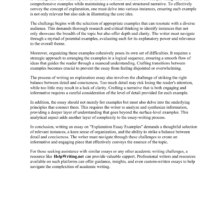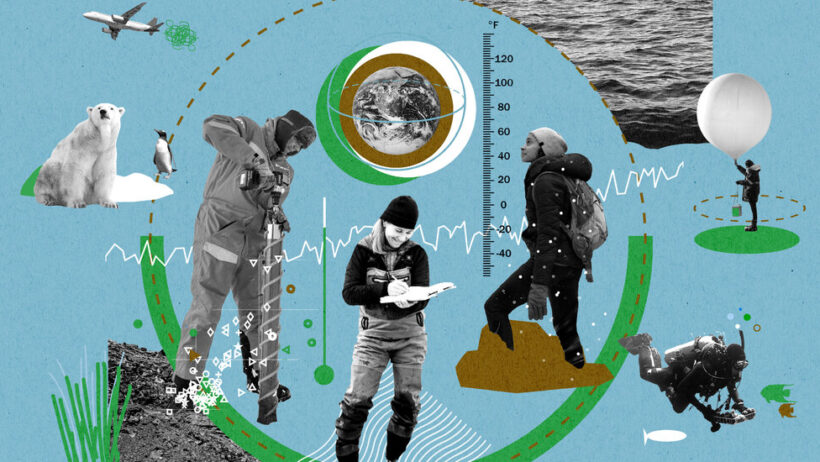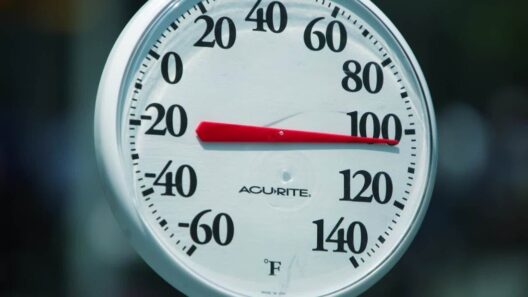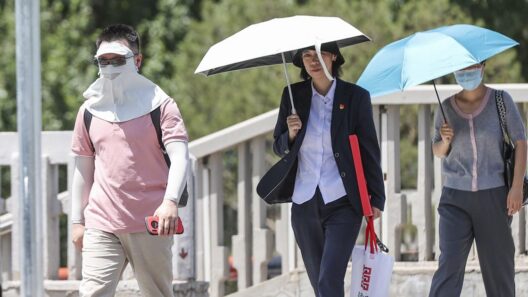As we soar through the 21st century, a pressing question emerges: How do we reconcile the undeniable evidence of climate change with the increasingly contentious discourse surrounding human responsibility? At the core of this discussion lies not merely the act of pointing fingers but a deeper inquiry into the systemic influences of human activity on our planet’s climate. This exploration transcends the blame game, seeking to unravel the complex tapestry of anthropogenic contributions to global warming.
To elucidate the gravity of our planetary predicament, it is crucial to recognize the intricate relationship between greenhouse gas emissions and human behavior. The burning of fossil fuels serves as a primary vector for carbon dioxide emissions, which impede the Earth’s ability to dissipate heat into space. Yet, rather than engaging in a futile blame game—where politicians, industries, and consumers blame each other—one must confront the myriad choices made in daily life and policy that collectively forge our environmental trajectory.
The statistics are sobering. According to various reports, human activities since the industrial revolution have elevated atmospheric CO2 levels to unprecedented heights. The Intergovernmental Panel on Climate Change (IPCC) emphasizes that these emissions are largely the byproduct of industrial production, transportation, and energy consumption. But what if we pursued a different line of questioning? What role do individual and collective human actions play in this overwhelming scenario?
One must consider the intricate web of socio-economic systems that perpetuate unsustainable practices. For instance, urban planning that favors car dependency exemplifies a systemic failure. Imagine if cities were designed to prioritize public transportation, cycling, and walking instead of car travel. Would we witness a significant decrease in greenhouse gas emissions? Such an inquiry not only identifies human activity as a central player but posits a challenge: How can we recalibrate our world to meet the demands of a changing climate?
At the heart of the conundrum lies our reliance on fossil fuels. The energy sector is a dominant contributor to global warming, primarily through coal, oil, and natural gas combustion. Transitioning to renewable energy sources is not just an environmental imperative but a socio-economic opportunity. Investing in solar, wind, and hydroelectric power generators can foster not only energy independence but also job creation. We must ask ourselves: Are we willing to innovate and provide for future generations, pivoting from finite resources to sustainable alternatives?
Moreover, agriculture contributes significantly to our climate woes. Traditional farming practices emit methane and nitrous oxide—two potent greenhouse gases. This raises another thought-provoking challenge: How can we transform our agricultural systems to be more sustainable? The adoption of regenerative farming practices, which enrich the soil, improve crop resilience, and decrease carbon emissions, is one potential pathway. It invites us to envision a food system that nourishes both the population and the planet.
But the environmental story does not unfold solely at the macro level. At the individual level, personal consumption patterns play a pivotal role. The question arises: Are we prepared to embrace minimalism and conscious consumerism in a world dominated by convenience and excess? According to various studies, reducing consumption, particularly of single-use plastics and processed foods, can significantly reduce one’s carbon footprint. The challenge lies in reshaping cultural norms that prioritize convenience over environmental sustainability.
Furthermore, the urgency of climate education cannot be overstated. The younger generations are at the forefront of climate activism, raising awareness about the consequences of inaction. How can we harness this momentum to cultivate a generation that not only understands the science of climate change but becomes adept at implementing practical solutions? A robust educational framework that integrates climate science into school curricula will fortify the younger populace with the knowledge required to become stewards of the Earth.
Social equity must also be woven into the climate change narrative. Vulnerable communities often bear the brunt of environmental degradation, despite contributing the least to greenhouse gas emissions. Addressing these issues through policy changes and community engagement can empower marginalized groups to advocate for environmental justice. As stewards of our surroundings, how do we ensure that the voices of all communities are amplified in discussions about climate solutions?
International cooperation is yet another critical element in the fight against global warming. Climate change knows no borders; thus, it necessitates a collaborative approach among nations. Agreements such as the Paris Accord illustrate the desire for a unified international stance. However, substantive action must follow rhetoric. The challenge here is formidable: Can geopolitical rivals set aside their differences to foster a collective response to one of humanity’s most pressing crises?
Ultimately, embracing a mindset that prioritizes sustainability, equity, and innovation can translate individual and collective actions into meaningful environmental outcomes. Rather than succumbing to despair or disengagement, it’s imperative to recognize the power of human agency in addressing climate change. By reframing the conversation from blame to action, we invite a productive dialogue on solutions that focus on systemic change. As we ponder our path forward, one question remains at the forefront: What actionable steps can we take today to mitigate the climate crisis for tomorrow?
In conclusion, the discourse surrounding global warming necessitates a complete understanding of human culpability—not simply as a source of blame but as a catalyst for change. While the challenge is monumental, so too is the potential for positive transformation. By confronting uncomfortable truths and championing collective action, we can reshape the future of our planet. It is our collective responsibility to forge a sustainable world, not just for ourselves but for generations yet unborn.






